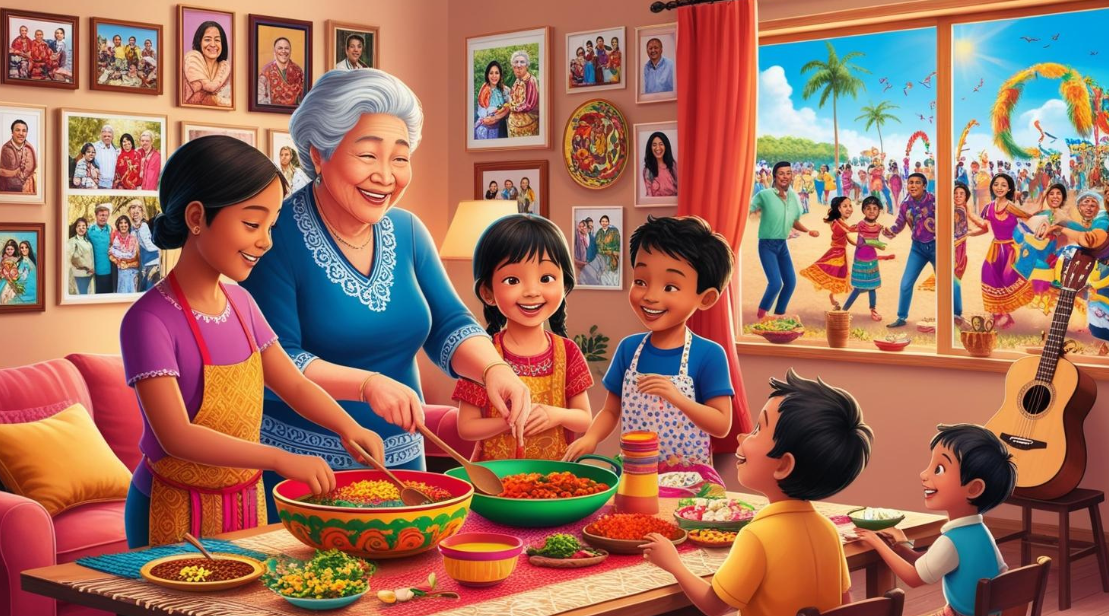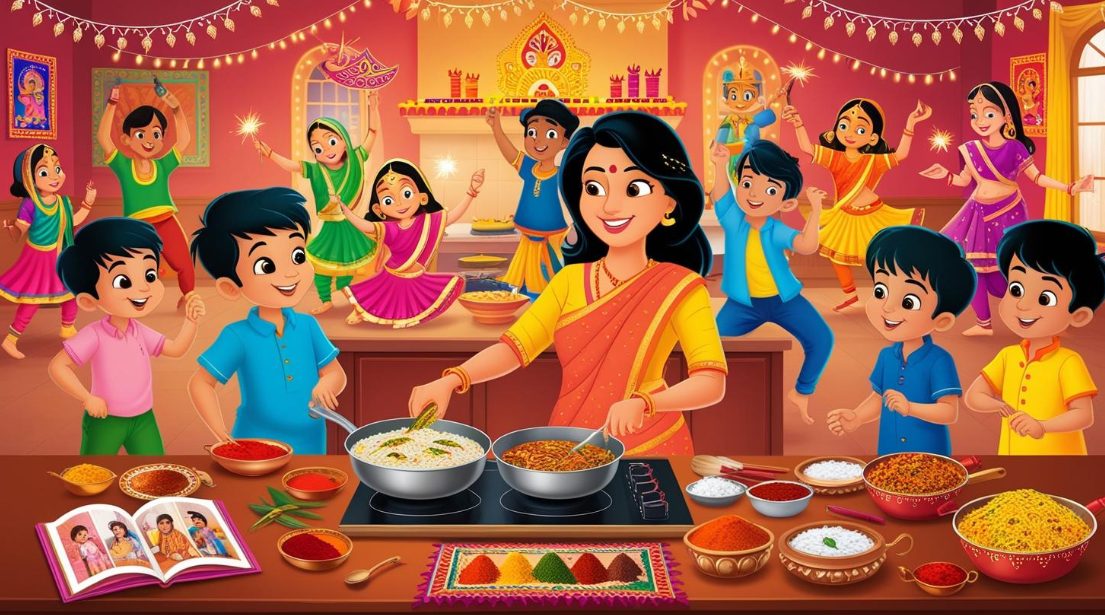Hi there, friend! Have you ever watched a toddler trying to mimic their mom or dad during a family celebration? Or seen a child excitedly trying on traditional clothes for a festival? That’s cultural development in action! But what exactly is cultural development in early childhood, and why does it matter? Let’s break it down like a friendly chat over a cup of tea.
1. Understanding Cultural Development in Early Childhood
Cultural development in early childhood is like planting tiny seeds of identity, values, and traditions in a child’s mind. As kids grow, these seeds bloom into an understanding of who they are, where they come from, and how they fit into the world around them.
It encompasses learning languages, customs, rituals, and behaviors that shape a child’s sense of belonging. This development lays the foundation for their lifelong connection to their heritage and influences their worldview. Children absorb cultural cues from their surroundings—family, community, and even the media—making early childhood a crucial phase for fostering cultural identity.
2. Why is Cultural Development Important?
Cultural development in early childhood isn’t just about traditions; it shapes character, social skills, and emotional resilience. Here’s why it matters:
- Building Identity: Knowing their cultural roots gives children a strong sense of self. When they understand where they come from, they develop confidence and pride in their identity.
- Creating Connections: Shared traditions and rituals help kids bond with family, friends, and their larger community. This sense of belonging is crucial for emotional security.
- Fostering Respect for Diversity: Understanding their own culture encourages kids to appreciate and respect other cultures. It nurtures open-mindedness and tolerance.
- Boosting Confidence and Security: A strong cultural foundation makes kids feel grounded and secure. They develop a moral compass guided by cultural values and traditions.
- Preserving Heritage for Future Generations: Cultural development in early childhood ensures that traditions, values, and customs are passed down, keeping them alive for future generations.
3. How Cultural Development Happens

Cultural learning doesn’t happen in classrooms alone—it thrives in daily life through family interactions, traditions, and experiences. Here are some key ways it unfolds:
Language and Communication
Language is a core part of culture. Children who learn their mother tongue from an early age develop a deep connection with their roots. Bilingualism also enhances cognitive skills, making it easier for children to learn additional languages.
Festivals and Celebrations
Festivals create joyful memories and reinforce cultural values. Whether it’s lighting diyas for Diwali, decorating a tree for Christmas, or preparing special dishes for Eid, these traditions shape a child’s cultural identity.
Stories and Folktales
Storytelling is a powerful way to pass down culture. Grandparents telling bedtime stories, folktales about ancestors, and mythological legends help instill morals, values, and a sense of belonging in children.
Food and Clothing
Food is an integral part of cultural heritage. Cooking traditional dishes together not only teaches children about their culture but also strengthens family bonds. Similarly, wearing traditional clothing on special occasions connects kids to their ancestry.
Music, Dance, and Art
Music, dance, and art play a significant role in cultural expression. Folk songs, classical dance forms, and traditional crafts help kids explore their heritage in a creative and engaging way.
Family and Community Role Models
Children learn culture by observing and imitating elders. When parents, grandparents, and community members practice traditions, children naturally adopt these cultural elements.
4. Challenges in Cultural Development
In today’s fast-paced world, cultural development in early childhood faces several challenges. Some of the major obstacles include:
Modern Lifestyles and Technology
With the rise of digital entertainment and globalization, traditional cultural practices can sometimes take a backseat. Children may prefer online games and Westernized media over traditional stories and rituals.
Living Abroad and Cultural Assimilation
Families who move to different countries may struggle to maintain cultural practices due to a lack of community support or exposure to a different dominant culture.
Preference Shifts in Younger Generations
As children grow, they may develop preferences for modern foods, clothing, and entertainment, moving away from traditional customs.
Despite these challenges, small, consistent efforts can keep cultural traditions alive and meaningful in a child’s life.
5. Tips for Encouraging Cultural Development in Early Childhood
Here are some practical ways to make cultural learning fun and engaging for kids:
- Start Early: Introduce children to cultural practices from a young age, making it a natural part of their upbringing.
- Make It Fun: Turn cultural activities into games, like a scavenger hunt for festival decorations or a dance-off with traditional music.
- Tell Stories: Share folktales, myths, or personal childhood stories to pass down cultural knowledge.
- Involve Them in Traditions: Let kids participate in festival preparations, cooking traditional foods, and performing rituals.
- Use Technology Wisely: Show educational videos, use cultural learning apps, or watch movies that highlight traditions.
- Create Cultural Experiences: Plan visits to cultural festivals, museums, or heritage sites to immerse children in real-life experiences.
- Stay Open-Minded: Encourage children to explore other cultures as well. A broad cultural perspective enriches their understanding and appreciation of diversity.
6. A Real-Life Story of Cultural Development

Let me share a quick story. My friend Priya moved to the US with her family. She was worried her kids might lose touch with their Indian roots. Instead of stressing, Priya got creative:
- Every weekend, she cooked a traditional dish while sharing stories about her childhood in India.
- During festivals, she invited her kids’ friends for mini celebrations, teaching them about Indian culture.
- She introduced Indian music and dance to make learning about her heritage exciting.
Now, her kids proudly share their culture at school and even teach their classmates about Diwali and Holi. Priya’s efforts show that cultural development in early childhood can flourish even in a different environment. Isn’t that inspiring?
Wrapping It Up
So, what is cultural development in early childhood? It’s the process of helping kids understand and embrace their cultural heritage. It’s about giving them the tools to say, “This is my story,” with pride and confidence.
Cultural development isn’t about being perfect. It’s about sharing traditions in a joyful and meaningful way. Even small efforts—like singing a lullaby in your native language, celebrating festivals with enthusiasm, or simply talking about your cultural heritage—can have a lasting impact on a child’s identity.
So go ahead, my friend—plant those cultural seeds and watch your little ones grow into confident, culturally aware individuals!
